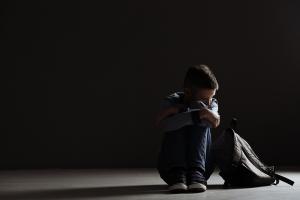Schoolchildren are being screened for mental “illnesses,” marketed as able to prevent homicidal & suicidal behavior, but these have been found to be unreliable
LOS ANGELES, CALIFORNIA, UNITED STATES, June 21, 2022 /EINPresswire.com/ -- In the wake of the recent tragic Uvalde, Texas shooting, there have been calls for increased mental health services and making them more available in schools—even without parental knowledge or consent. Underaged students essentially can “self-refer” to counselors, without being
aware how this could stigmatize or put them at risk, according to the mental health industry watchdog, Citizens Commission on Human Rights International. CCHR said serious risks are being taken with children and adolescent’s lives, as the screenings can be unreliable, and psychiatrists and psychologists admit they cannot predict future dangerousness or violent behavior.As CCHR’s research has found, when depression screening, for example, was widely used throughout the US schools, teens were subjected to a false-positive rate of 84%, leading to many being prescribed antidepressants. Within a year of federal recommendations for sweeping use of this in 2003, the Food and Drug Administration reported that depressed adolescents treated with antidepressants were twice as likely to be suicidal as those treated with placebo. It issued a “black box warning” in October 2004 that antidepressants prescribed to school-aged children could induce suicide attempts or suicide.[1]
By 2012, when the depression-screening program stopped, Prof. David Healy, a psychopharmacology expert, estimated that 90% of school shooter in the prior decade had been taking antidepressants.
Today, advocates of mental health screening assert it is a way to prevent homicidal or suicidal behavior by students, but cases of mass violence generally show psychiatric evaluations are not effective in determining this and cannot predict future violence.
For example, an adult male was court-ordered for a psych evaluation after a conviction for viciously assaulting his girlfriend. The evaluating psychiatrist’s report admitted, “Mental health professionals are not able accurately to predict remote future dangerousness.” Therefore, he could not say whether the perpetrator “will become violent again in the future” but did not pose a threat to the general public at that time. The man was released from prison after serving less than three of his five-year sentence and went on to shoot and kill five co-workers and wounding five police officers in Illinois in 2019.[2]
CCHR’s Texas chapter is in the heat of the current push for mental health services and screening for children in the wake of Uvalde but it notes that Texas legislation “was supposed to make our schools safe in the wake of the Santa Fe shooting [2018],” and “brought fundamental changes to our schools through a multi-tiered system of supposed support.” Yet, despite mental health education, controversial screenings, students able to “self-refer” to counselors without parental consent, the recent Texas school shooting occurred.[3]
After the monstrous school shooting incident in Marjory Stoneman Douglas High School, Parkland Florida in 2018, central Florida schools received millions of dollars for mental health counselors and services in 2019. Even parents were given “educational sessions” on mental health, according to a report by CCHR’s Florida chapter.[4]
However, in March 2019, the late Karen R. Effrem, M.D., a pediatrician, had noted: “In the wake of multiple horrific school shootings — particularly the Parkland, Fla., massacre where 17 people were murdered by a student long-known to have mental issues — states all over the nation have been moving to expand mental health screening, treatment, and data collection.”
Dr. Effram, also president of Education Liberty Watch continued: Florida’s Marjory Stoneman Douglas High School Safety Act “expanded mental screening of students by unqualified, minimally trained teachers and other school personnel despite admissions by psychiatric physicians trained for years that they are unable to correctly identify those known mentally ill patients that will become violent. The psychiatrist that extensively studied the history of the Sandy Hook shooter that killed 26 young children and teachers said about the Parkland shooting: ‘It really means we can’t rely on prediction and identifying the bad guys. Because we’ll misidentify some who aren’t bad guys, and we’ll fail to identify others who may become bad guys.’”[5]
CCHR International has found numerous examples of this or failed mental health/behavioral service or evaluation links. In 2021 and 2022 alone, five teens and a 21-year-old killed 27 and injured 18, while four of them killed themselves.
Robert Pondiscio, a Senior Fellow of the American Enterprise Institute, wrote: “Ideas and techniques borrowed from popular psychology have aggressively inserted themselves into classroom practice, resulting in the rise of therapeutic education.” Further, “social and emotional learning (SEL) has drifted ever closer to being a central purpose of education without a full and proper examination of its role or a sufficient discussion about its practices or expectations for its effectiveness.”[6]
CCHR says that officials should be questioning the failure of psychological and psychiatric evaluations, treatment programs and screening in schools and in detention centers as well as threat assessment teams already in place in schools before throwing more money at them. It is concerned that the very “mental health awareness” and treatment offered students and others could be exacerbating potentially violent behavior and in some cases, even causing it.
For further information, read CCHR’s report Psychiatric Drugs: Create Violence and Suicide.
[1] “Controversial mental health program closes down,” BMJ, 2012; 345, https://www.cchrint.org/2012/11/27/teenscreen-shuts-down/
[2] Annie Sweeney and Stacy St. Clair, “Aurora mass shooter in his own words: 'I acted out of rage and fear' in beating of ex-girlfriend with baseball bat,” Chicago Tribune, 19 Feb 2022, https://www.chicagotribune.com/news/breaking/ct-met-aurora-shooting-gary-martin-gun-criminal-record-20190220-story.html
[4] https://www.cchrflorida.org/cchr-warns-officials-on-dangers-of-mental-health-screenings/, citing: Karen R. Effrem, M.D. “Multiple States Seek to Expand Invasive Mental Health Screening in Schools,” The National Pulse, 1 Mar. 2019, https://thenationalpulse.com/2019/03/01/multiple-states-seek-expand-invasive-mental-health-screening-schools/
[5] Ibid.
[6] Robert Pondiscio, “Unexamined Rise of Therapeutic Education: How Social-Emotional Learning Extends into Students’ Lives and Expands Teachers Role,” American Enterprise Institute, 13 Oct. 2021, https://www.aei.org/research-products/report/the-unexamined-rise-of-therapeutic-education-how-social-emotional-learning-extends-k-12-educations-reach-into-students-lives-and-expands-teachers-roles/


No comments:
Post a Comment